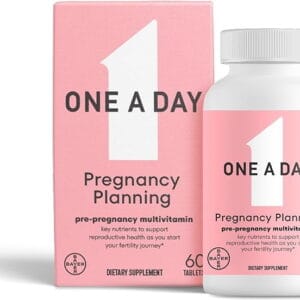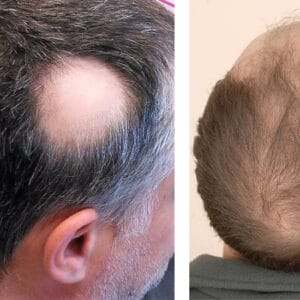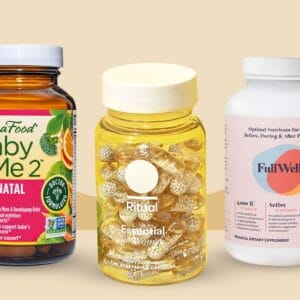Expectant mothers seek the safest and most effective ways to support their health and their baby’s development. Organic prenatal vitamins have gained popularity as a natural alternative to traditional supplements. Made from wholesome, organic ingredients, these vitamins provide essential nutrients without exposing mothers-to-be to harsh chemicals or toxins. By choosing organic prenatal vitamins, women can feel confident in their decision to nurture their bodies and their growing babies with the purest, most natural care available, aligning with a holistic approach to pregnancy and prenatal wellness.

Benefits of Choosing Organic Prenatal Vitamins for a Healthier Pregnancy
Choosing organic prenatal vitamins is a crucial decision for expectant mothers who are keen on ensuring a healthier pregnancy through natural care. Organic prenatal vitamins are made from natural ingredients, are free from harmful chemicals, and are designed to provide the necessary nutrients for both the mother and the developing fetus. These vitamins are formulated to support the health and well-being of pregnant women, addressing the nutritional gaps in their diet. By opting for organic prenatal vitamins, mothers-to-be can minimize their exposure to synthetic additives and pesticides often found in conventional vitamins.
Understanding the Importance of Organic Prenatal Vitamins
Organic prenatal vitamins are rich in essential nutrients such as folic acid, iron, calcium, and omega-3 fatty acids, which are crucial for the baby’s development and the mother’s health. Folic acid prevents birth defects of the baby’s brain and spine, while iron supports the mother’s increased blood volume and prevents anemia. Calcium is vital for the baby’s bone development, and omega-3 fatty acids support the baby’s brain and eye development. | Nutrient | Importance | | — | — | | Folic Acid | Prevents birth defects of the brain and spine | | Iron | Supports increased blood volume and prevents anemia | | Calcium | Vital for baby’s bone development | | Omega-3 Fatty Acids | Supports baby’s brain and eye development |
Key Ingredients to Look for in Organic Prenatal Vitamins
When selecting organic prenatal vitamins, it’s essential to look for key ingredients that support pregnancy health. These include natural sources of folate instead of synthetic folic acid, iron from natural sources like ferrous bisglycinate, and omega-3 fatty acids from algae oil, which is a sustainable and vegan-friendly source. Additionally, vitamins that contain probiotics can support digestive health, which is often challenged during pregnancy. | Ingredient | Benefit | | — | — | | Natural Folate | Better absorption and utilization by the body | | Iron from Ferrous Bisglycinate | Gentle on the stomach and effective | | Algae Oil Omega-3 | Sustainable source of DHA and EPA | | Probiotics | Supports gut health and immune system |
How Organic Prenatal Vitamins Support Fetal Development
Organic prenatal vitamins play a significant role in supporting the fetus’s development throughout the pregnancy. The presence of essential fatty acids, vitamins, and minerals ensures that the baby receives the necessary nutrients for growth. These vitamins support the development of the baby’s brain, nervous system, and other vital organs. | Developmental Aspect | Supported By | | — | — | | Brain Development | Omega-3 fatty acids, particularly DHA | | Bone Development | Calcium and Vitamin D | | Nervous System | Folate and Vitamin B12 |
Comparison Between Organic and Conventional Prenatal Vitamins
The primary difference between organic and conventional prenatal vitamins lies in their ingredients and manufacturing process. Organic prenatal vitamins are made from certified organic ingredients, are free from GMOs, and are produced without the use of synthetic pesticides or fertilizers. In contrast, conventional prenatal vitamins may contain synthetic ingredients and may not adhere to the same strict production standards. | Criteria | Organic Prenatal Vitamins | Conventional Prenatal Vitamins | | — | — | — | | Ingredients | Certified organic | May contain synthetic ingredients | | GMOs | GMO-free | May contain GMOs | | Pesticides/Fertilizers | No synthetic pesticides or fertilizers | May involve synthetic pesticides or fertilizers |
Making an Informed Decision About Your Prenatal Vitamin
When choosing a prenatal vitamin, expectant mothers should consider several factors, including the vitamin’s ingredients, the manufacturer’s reputation, and any third-party certifications such as USDA Organic or Non-GMO Project Verified. Reading customer reviews and consulting with a healthcare provider can also provide valuable insights into selecting the best organic prenatal vitamin. | Factor | Consideration | | — | — | | Ingredients | Look for natural sources of essential nutrients | | Manufacturer Reputation | Research the brand’s history and practices | | Third-Party Certifications | Ensure the product meets high standards | | Customer Reviews | Understand other users’ experiences |
| Brand | Certifications | Key Ingredients |
|---|---|---|
| Brand A | USDA Organic, Non-GMO | Folate from natural sources, Algae oil omega-3 |
| Brand B | Non-GMO, Vegan Certified | Iron from ferrous bisglycinate, Probiotics |
What are natural alternatives to prenatal vitamins?

While prenatal vitamins are often recommended for pregnant women, some individuals may prefer to explore natural alternatives to support their health and the development of their baby. These alternatives can include dietary changes and supplements derived from whole foods.
Nutritional Dietary Changes
A well-balanced diet rich in essential nutrients is crucial during pregnancy. Expectant mothers can focus on consuming a variety of whole foods to meet their nutritional needs. This includes:
- Eating leafy greens like spinach and kale, which are high in folate and iron.
- Incorporating fatty fish such as salmon, which is a good source of omega-3 fatty acids.
- Consuming nuts and seeds, which provide healthy fats, protein, and fiber.
Whole Food Supplements
For those who require additional nutritional support, whole food supplements can be a viable alternative to traditional prenatal vitamins. These supplements are made from actual foods and can provide essential nutrients in a more natural form. Some examples include:
- Probiotics derived from fermented foods, which support gut health and immune function.
- Omega-3 supplements made from algae or fish oil, which support fetal brain development.
- Iron-rich supplements derived from beetroot or other plant sources, which help prevent iron deficiency.
Lifestyle and Dietary Considerations
In addition to dietary changes and supplements, other lifestyle factors can impact nutrient intake and overall health during pregnancy. Expectant mothers should consider:
- Staying hydrated by drinking plenty of water throughout the day.
- Avoiding processed foods and those high in added sugars and unhealthy fats.
- Consulting with a healthcare provider before making any significant changes to their diet or supplement routine.
Does Garden of Life Organics prenatal vitamin have DHA?

Garden of Life Organics prenatal vitamin contains DHA, an omega-3 fatty acid that is crucial for fetal brain and eye development. The product is designed to provide essential nutrients to support a healthy pregnancy.
Nutritional Benefits of DHA in Prenatal Vitamins
The inclusion of DHA in prenatal vitamins like Garden of Life Organics is significant because it supports the development of the fetus’s brain and eyes. Research has shown that DHA supplementation during pregnancy can have positive effects on the cognitive and visual development of the child. Some key benefits of DHA include:
- Supports fetal brain development and may improve cognitive function
- Contributes to the development of the fetal retina and may improve vision
- May reduce the risk of preterm birth and associated complications
Sources of DHA in Prenatal Vitamins
Garden of Life Organics prenatal vitamin derives its DHA from natural sources, ensuring that the nutrient is in a form that is easily absorbed by the body. The use of algal oil as a source of DHA is common in prenatal vitamins due to its high concentration of this essential fatty acid. Key aspects of DHA sourcing include:
- Algal oil is a sustainable and vegan-friendly source of DHA
- The DHA used is often certified by third-party organizations to ensure purity and potency
- The use of natural sources ensures that the DHA is in a form that is easily utilized by the body
Importance of Checking the Label
When selecting a prenatal vitamin like Garden of Life Organics, it is essential to check the label to confirm that it contains DHA. The amount and source of DHA can vary between products, and some may require additional supplementation. Key considerations when checking the label include:
- Verify that the product contains DHA and note the amount per serving
- Check the source of DHA, such as algal oil, to ensure it aligns with dietary preferences
- Look for third-party certifications that ensure the product’s quality and purity
Do you really need DHA in prenatal vitamins?

The importance of DHA (Docosahexaenoic acid) during pregnancy is a topic of ongoing debate among healthcare professionals. DHA is an omega-3 fatty acid that plays a crucial role in fetal brain and eye development. Research suggests that DHA supplementation during pregnancy may have a positive impact on fetal development, particularly in terms of cognitive and visual development.
Benefits of DHA in Prenatal Vitamins
DHA is essential for the development of the fetal brain and retina. Studies have shown that higher DHA levels during pregnancy are associated with improved cognitive development and reduced risk of preterm birth. The benefits of DHA supplementation can be summarized as follows:
- Improved fetal brain development: DHA is incorporated into the brain and retina of the fetus, supporting their growth and maturation.
- Reduced risk of preterm birth: Some studies suggest that DHA supplementation may reduce the risk of preterm birth, although more research is needed to confirm this.
- Enhanced cognitive development: Higher DHA levels during pregnancy have been linked to improved cognitive development in children.
Sources of DHA
Pregnant women can obtain DHA through their diet or supplements. Fatty fish, such as salmon and sardines, are rich in DHA, but pregnant women are often advised to limit their consumption due to concerns about mercury contamination. Alternative sources of DHA include:
- Fish oil supplements: Many prenatal vitamins contain DHA derived from fish oil, which is a concentrated source of this essential fatty acid.
- Algal oil supplements: Algal oil is a vegetarian source of DHA, derived from algae, and is considered a safer alternative to fish oil.
- Fortified foods: Some foods, such as eggs and yogurt, are fortified with DHA, providing an additional source of this essential nutrient.
Recommendations for DHA Intake
The recommended intake of DHA during pregnancy varies, but most healthcare professionals agree that pregnant women should consume at least 200-300 mg of DHA per day. Pregnant women should consult with their healthcare provider to determine the best way to meet their DHA needs, whether through diet or supplements. Key considerations include:
- Individual nutritional needs: Pregnant women with a history of preterm labor or other complications may require higher doses of DHA.
- Dietary restrictions: Vegetarian or vegan pregnant women may require alternative sources of DHA, such as algal oil supplements.
- Supplement quality: Pregnant women should choose high-quality DHA supplements that are free from contaminants and have been tested for purity.
Can your baby still be healthy without prenatal vitamins?

Prenatal vitamins are supplements designed to provide essential nutrients to pregnant women, supporting the health and development of their babies. While they are highly recommended, it is possible for a baby to be healthy without prenatal vitamins if the mother consumes a well-balanced diet that includes all the necessary nutrients. However, it is crucial to understand that pregnancy increases the demand for certain nutrients, and a deficiency in these can lead to complications.
Importance of Key Nutrients
The health of a baby during pregnancy is significantly influenced by the mother’s intake of key nutrients. Folic acid, for instance, is critical in preventing birth defects of the baby’s brain and spine. Other essential nutrients include iron, which supports the production of red blood cells, and calcium, necessary for the development of the baby’s bones, teeth, and muscles. A diet lacking in these nutrients can potentially lead to health issues for both the mother and the baby. Some of the key benefits of these nutrients include:
- Prevention of birth defects through adequate folic acid intake
- Support for the mother’s and baby’s health with sufficient iron levels
- Development of the baby’s skeletal system with calcium
Dietary Alternatives to Prenatal Vitamins
A well-planned diet can serve as an alternative or complement to prenatal vitamins, ensuring that the pregnant woman and her baby receive necessary nutrients. Foods rich in folate (the natural form of folic acid), such as leafy greens and legumes, are particularly important. Similarly, consuming iron-rich foods like red meat, poultry, and fortified cereals, along with vitamin C-rich foods to enhance iron absorption, is beneficial. Other nutrient-dense foods include those high in calcium, such as dairy products and leafy greens. Key dietary components include:
- Eating a variety of fruits and vegetables to ensure a broad intake of vitamins and minerals
- Including protein-rich foods to support the baby’s growth
- Consuming foods rich in omega-3 fatty acids, such as salmon, for fetal brain development
Risks Associated with Not Taking Prenatal Vitamins
Not taking prenatal vitamins can pose certain risks, especially if the mother’s diet is lacking in essential nutrients. A deficiency in critical nutrients can lead to health issues for both the mother and the baby. For example, a lack of folic acid can result in neural tube defects. Similarly, insufficient iron can cause anemia in the mother, potentially leading to preterm labor and low birth weight. Understanding these risks is crucial for managing pregnancy health effectively. Some potential risks include:
- Increased risk of birth defects due to inadequate nutrient intake
- Anemia and related complications from insufficient iron
- Potential for preterm labor and other pregnancy complications due to nutrient deficiencies
Frequently Asked Questions
What are Organic Prenatal Vitamins and How Do They Differ from Regular Prenatal Vitamins?
Organic prenatal vitamins are dietary supplements designed for pregnant women, made from organic and natural ingredients, free from synthetic additives, pesticides, and genetically modified organisms (GMOs). Unlike regular prenatal vitamins, organic prenatal vitamins are formulated to provide essential nutrients such as folate, iron, and calcium in a form that is closer to their natural state, potentially making them easier for the body to absorb and utilize. This can be particularly beneficial for women who are looking for a more holistic approach to their prenatal care, seeking to minimize exposure to chemicals and maximize the intake of nutrients from natural sources.
Are Organic Prenatal Vitamins as Effective as Regular Prenatal Vitamins?
The effectiveness of organic prenatal vitamins compared to regular prenatal vitamins largely depends on their formulation and the quality of their ingredients. High-quality organic prenatal vitamins that contain the necessary nutrients in adequate amounts can be just as effective as their non-organic counterparts. It’s crucial to look for products that are certified by reputable third-party organizations, ensuring they meet certain standards for purity and potency. Additionally, consulting with a healthcare provider before starting any supplement regimen is essential to ensure that the chosen vitamin meets the individual’s specific nutritional needs during pregnancy.
What Should I Look for When Choosing an Organic Prenatal Vitamin?
When selecting an organic prenatal vitamin, it’s essential to look for products that are made from non-GMO ingredients, are free from artificial preservatives and flavorings, and are certified organic by a recognized certification body. The vitamin should contain a balanced mix of essential nutrients, including omega-3 fatty acids for fetal brain development, iron to support the mother’s and baby’s health, and folate to prevent birth defects of the brain and spine. Additionally, consider the manufacturer’s reputation, the product’s bioavailability, and any third-party testing that has been conducted to verify the product’s quality and safety.
Can Organic Prenatal Vitamins Help with Pregnancy-Related Health Issues?
Organic prenatal vitamins can play a supportive role in managing certain pregnancy-related health issues by providing essential nutrients that help maintain the health of both the mother and the fetus. For example, iron can help alleviate anemia, calcium and vitamin D are crucial for bone health, and omega-3 fatty acids support heart health and fetal development. While these vitamins are not a replacement for medical treatment, they can be part of a comprehensive approach to prenatal care, helping to mitigate some common discomforts and complications associated with pregnancy when used under the guidance of a healthcare provider.














